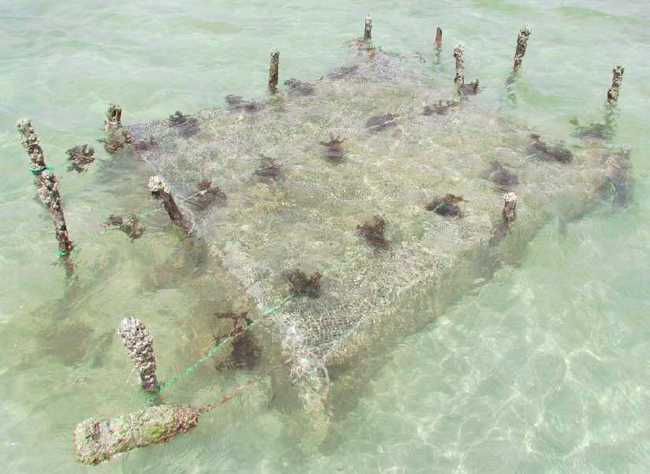Aquaculture is seen as a vital part of feeding a growing world population without depleting the ocean's resources. To contribute to food security without adverse environmental effects, issues of ecosystem degradation and water pollution due to effluents high in nitrogen need to be addressed.
Integrated multitrophic aquaculture (IMTA) combines organisms of different trophic levels into one system, increasing its efficiency and decreasing or eliminating waste production by using the effluents of one species as a resource for the cultivation of subsequent organisms. Such systems are becoming increasingly important in the European Union, but their application on tropical species has been limited.
Within the BioCoCulture project, the performance of organisms on different trophic levels is investigated for application in a tropical IMTA. The edible halophyte (salt-tolerant plant) Sesuvium portulacastrum is evaluated for its ability to take-up dissolved inorganic nutrients in different modes of cultivation, including hydroponics.
Feeding on and assimilation of nitrogen from fish feces is tested in sea cucumbers (Holothuria tubulosa and H. scabra), which have a high market value and become increasingly relevant in aquaculture.
The performance of these organisms combined in a closed recirculation aquaculture system (RAS) with the addition of milkfish Chanos chanos is examined.
Further research topics are the integration of seagrass and edible seaweeds as bioremediator organisms. In the research, the Ecophysiology/Experimental Aquaculture working group applies a range of methods including respiration experiments, biomarkers and stable isotope analysis.
Project Partners (Germany) |
International Project Partners | |
|---|---|---|
| ZMT – Leibniz Centre for Tropical Marine Research Bremen |
IMS – Institute for Marine Sciences, Zanzibar Zanzibar Mariculture Project, FAO |





